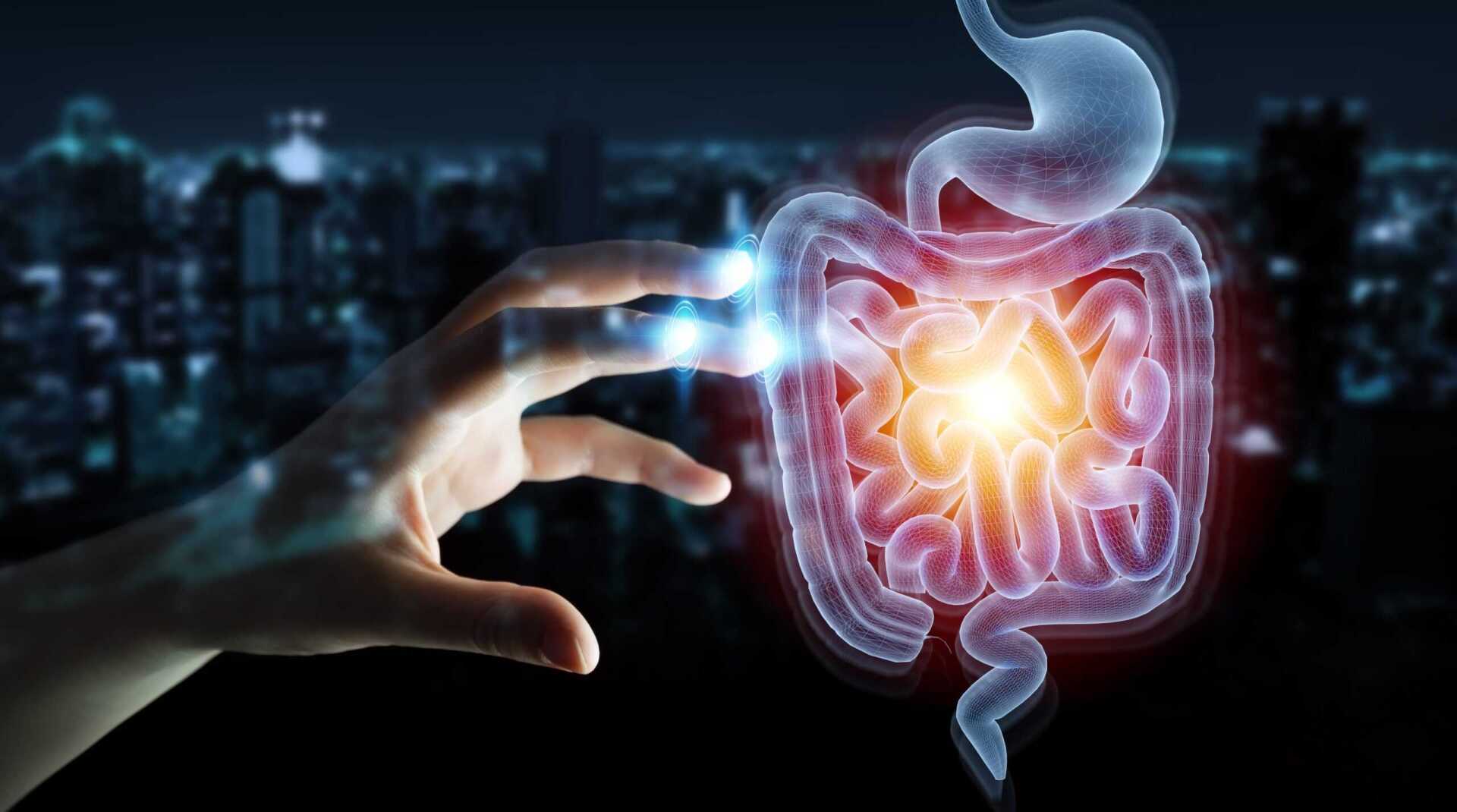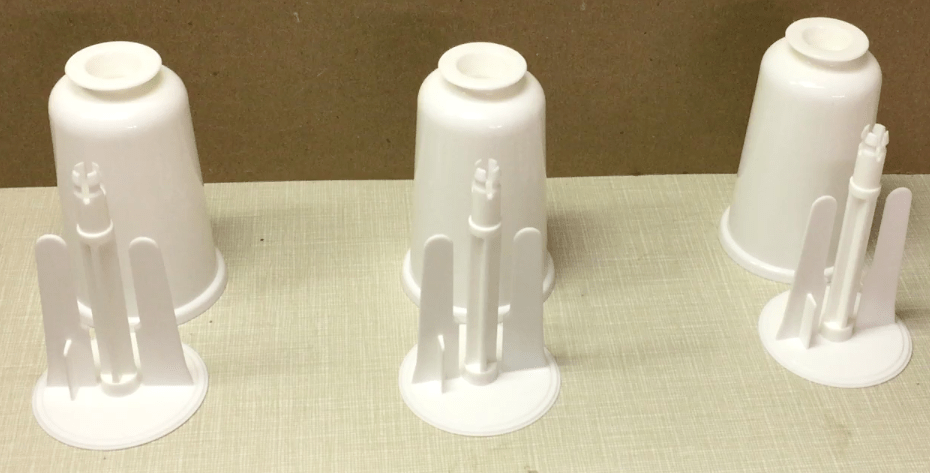Crohn’s & Colitis and how Güdpod may be able to help with IBD!
Crohn’s and Colitis sufferers rejoice! Güdpod is here with something new for people with IBD!

Crohn’s disease and Ulcerative Colitis are types of Inflammatory Bowel Diseases (IBD) that affect at least 3 million people in the United States.[1] The disease causes inflammation in the digestive tract which hampers the body’s ability to properly digest food and absorb nutrients. Sufferers are familiar with bloating and diarrhea, along with heightened sensitivity to specific foods and additives. However, many may not be aware they are at higher risk of malnutrition due to decreased ability to absorb nutrients. Güdpod wants to help with that!
These diseases may reduce appetite due to stomach discomfort, while simultaneously increasing overall need for energy because of lack of absorption. Considering as much, diet is clearly an important consideration for people who experience Crohn’s and Colitis, along with other IBD related conditions. This is where Güdpod comes in! Güdpod may be able to help support an IBD-friendly diet and potentially assist in avoiding deficiencies with our Functional Beverages. While providing needed nutrients, they have the added benefit of being easy on your stomach! A much needed relief for sufferers of chronic IBD!
Times are changing – is productivity?
As mentioned earlier, people with inflammatory bowel diseases are at a high risk of developing nutritional deficiencies. For Crohn’s disease that involves the small intestine (duodenum, jejunum, and ileum), inflammation can cause a failure to absorb many nutrients, leading to malnutrition and weight loss. People with ulcerative colitis may have less severe nutrient deficiencies because the small intestine is not involved. However, weight loss and anemia may still be a problem due to poor appetite, food aversions, severe diarrhea, and blood loss.
While the exact nutritional requirements can vary across patients, here are some of the most common micro-nutrients Crohn’s & Colitis patients become deficient in over time:
- Iron – Iron deficiency is the most common cause of anemia. Anemia is a common symptom of IBD due to chronic blood loss, in addition to impaired iron absorption due to tissue inflammation in the intestinal tract and colon. [2]
- Calcium – Low bone mass is common in patients with IBD, including osteoporosis, which increases risk for bone fracture. Causes of this include lower absorption of calcium, inflammation, and use of medications such as corticosteroids (anti-inflammatory).
- Vitamin K – Vitamin K is fat-soluble. Poor digestion and inability to absorb nutrients from food can cause a lack of healthy fats in the body. Inflammation of the small intestine can also lead to poor absorption of vitamin K.
- Folic acid – Folic acid, a B Vitamin, helps our bodies produce and maintain new cells, as well as helping process fats and carbohydrates. Some medications used to treat IBD, such as sulfasalazine and methotrexate, interfere with the absorption of folic acid. Therefore, IBD patients who take these medications are usually advised to take a folate supplement.
- Zinc – Zinc helps the body fight off bad bacteria and viruses. Chronic diarrhea, fistulas, or extensive disease in the small intestine can lead to a zinc deficiency. People with short bowel syndrome may also have trouble getting the proper amount of zinc in their diet. [3]
Consider supplementing your IBD-diet for Crohn’s and Colitis With Güdpod Functional Beverages!
Green vegetables are incredibly potent sources of nutrients, and kale is one of the best! With only 33 calories per cup, this leafy green vegetable is chock-full of Vitamins A, C, and K. In addition it contains fiber that IBD sufferers need, alongside the brain-boosting B Vitamin, Folate. Kale contains the minerals calcium and zinc, both of which are commonly deficient in people with IBD. Kale even has a modest amount of protein, as well as an omega-3 fatty acid known as Alpha-linolenic acid. This makes kale a wonderful addition to anyone looking to include more healthy fats in their diet, including plant-based diets! Additionally, with more iron than broccoli per serving, kale stands out as a super-food among veggies! [4]
Some people with IBD may experience difficulty processing the insoluble fiber in many cruciferous vegetables in their raw form. They can be hard to digest, and may cause or worsening a flare-up of IBD symptoms, including abdominal pain, bloating, and diarrhea. This is where Güdpod comes in! We want to give you a chance to get these nutrients into your diet, while potentially avoiding the discomfort that comes with leafy greens!
Apples are another invaluable source of fiber, both soluble and insoluble! It is a powerhouse of Phytochemicals like quercetin, believed to protect our cells from invading forces. Quercetin, a naturally occurring plant chemical in apples has antioxidant and anti-inflammatory effects. Apples also include pectin, which is a type of soluble fiber that may help prevent constipation and have the potential to lower LDL, also known as the “bad” cholesterol. The beneficial bacteria in the colon helps ferment pectin, which produce fatty acids in the digestive tract that may have the potential to lower risk of bowel disorders.[5]
With our Kale and Apple Functional Beverage Pod, Güdpod has given IBD sufferers a thoughtful new option that may help them benefit from these super-foods without triggering or worsening symptoms. Each Kale & Apple pod contains three full servings of veggies and fruits, which can be hard for busy people to get in a traditional diet nowadays. Consider including Güdpod in your daily regimen, especially if you are looking for a quick and easy way to supercharge your routine or to meet your nutritional goals!
Click here to learn more about this product.
Links or Sources
[1] https://www.cdc.gov/ibd/data-statistics.htm[2] https://www.ncbi.nlm.nih.gov/pmc/articles/PMC4540708/#:~:text=Anemia%20is%20a%20common%20extraintestinal,absorption%20due%20to%20tissue%20inflammation. [3] https://www.crohnscolitisfoundation.org/sites/default/files/2020-03/diet-and-nutrition-brochure.pdf [4] https://www.webmd.com/food-recipes/kale-nutrition-and-cooking#1 [5] https://www.hsph.harvard.edu/nutritionsource/food-features/apples/#:~:text=One%20serving%2C%20or%20one%20medium,)%2C%20and%203%20grams%20fiber.


CONTACT INFO:
All Rights Reserved | Gudpod Corp.


